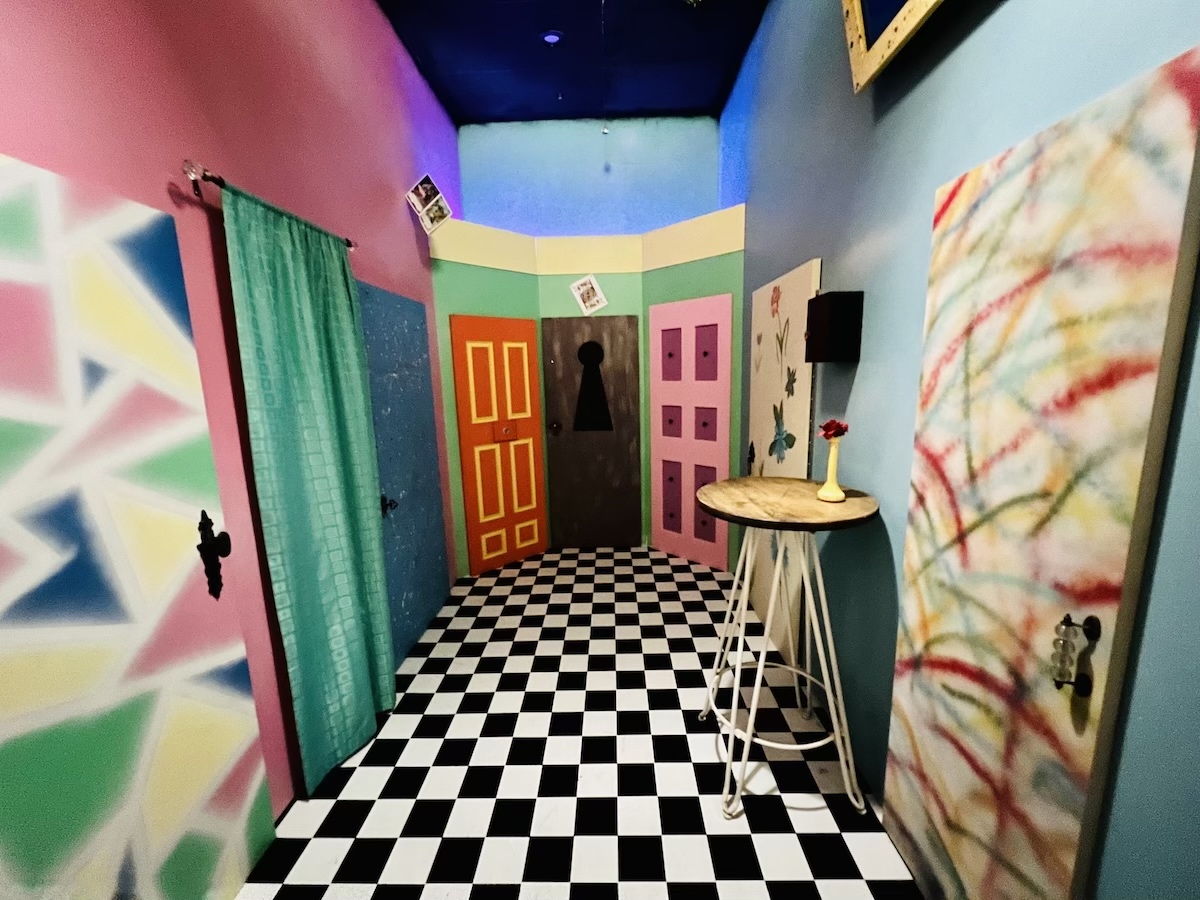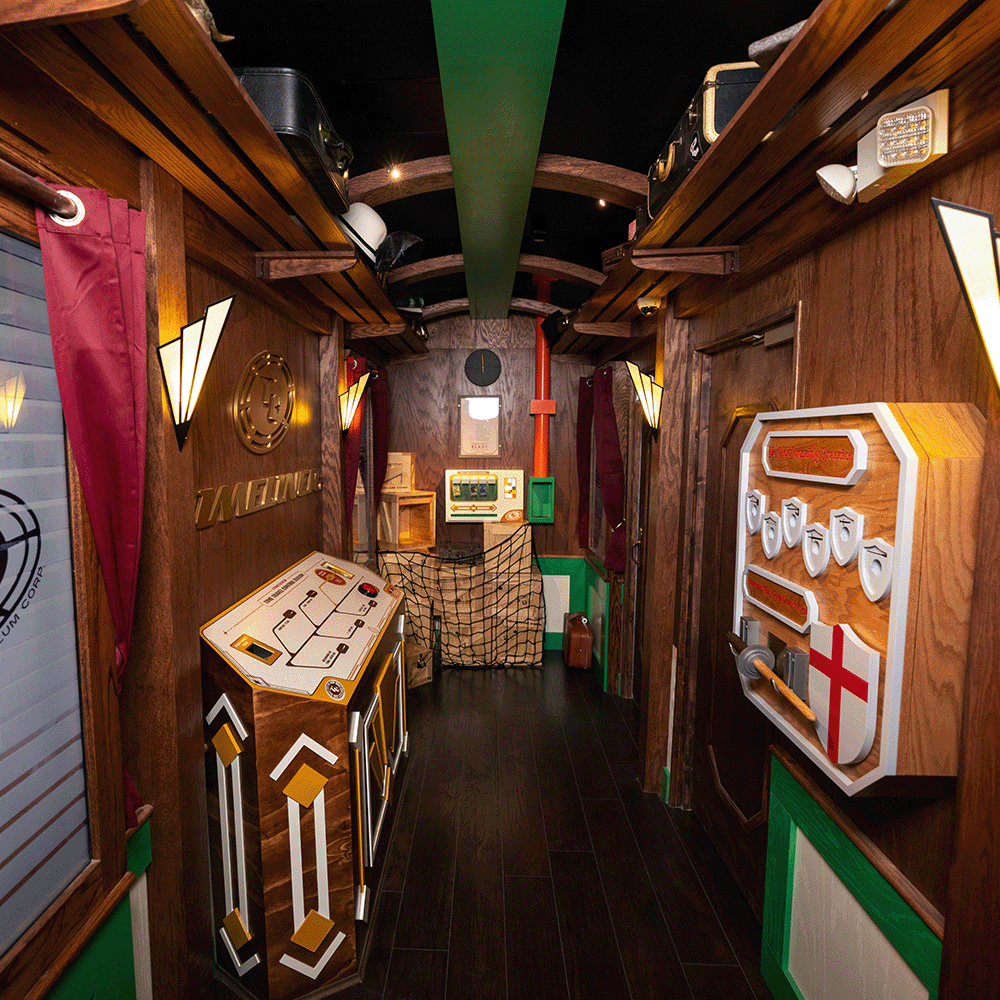Thrilling Escape Room in Minneapolis Mall of America-- Reserve Now
Thrilling Escape Room in Minneapolis Mall of America-- Reserve Now
Blog Article
Group Approaches: Exactly How to Team up Efficiently in a Getaway Room
Navigating the complexities of a getaway space demands greater than plain enthusiasm; it calls for a well-coordinated approach based in clear communication, critical duty assignments, and adept time monitoring. Teams must actively pay attention per member's understandings, appoint roles that line up with private staminas, and maintain routine check-ins to guarantee focus and prevent redundancy. By promoting a setting that values cohesion and flexibility, groups can substantially increase their effectiveness and success prices. The subtleties of these strategies can change the experience, yet exactly how exactly can they be carried out to maximize the capacity for success?
Establish Clear Communication

To assist in clear interaction, it is essential to assign a central factor of contact for info circulation. Brief, concentrated updates from each group member can maintain the group informed without overwhelming them with details.

Designate Duties Strategically
While clear communication sets the structure for effective teamwork, designating roles purposefully makes sure that each employee's toughness are made use of properly. In a getaway area scenario, the time-sensitive and complex nature of difficulties necessitates a well-organized technique to job delegation. By recognizing and leveraging private competencies, teams can maximize their analytic capacities and improve total efficiency.
First, analyze the special abilities and qualities of each individual. For instance, a person with an eager eye for information might succeed in discovering surprise objects, while a logical thinker could be better matched to solving problems - best escape room. It's just as important to have a leader who can oversee progression, manage the timeline, and make definitive calls when needed. This role typically calls for strong organizational and social skills.
2nd, ensure that functions are versatile and adaptable. As brand-new challenges arise, the team has to have the ability to pivot, reallocating jobs as needed. This versatility aids preserve momentum and avoids bottlenecks that might occur due to stiff function projects.
Ultimately, a strategic strategy to duty project not only maximizes the strengths of each team participant but additionally fosters a cohesive setting, driving the team in the direction of a successful escape.
Use Diverse Abilities
Recognizing and utilizing the diverse skills within your team can substantially elevate your efficiency in an escape area. Each staff member brings distinct staminas to the table, and efficiently leveraging these capabilities can quicken problem-solving and enhance overall performance. For instance, a staff member with solid logical this abilities could succeed at analyzing intricate codes or patterns, while another with eager observational abilities might quickly spot concealed ideas that may forget.
Efficient communication is vital to using these varied abilities. Encourage employee to voice their understandings and concepts promptly, making certain that all potential options are taken into consideration. This comprehensive strategy cultivates a vibrant atmosphere where imagination and critical reasoning can flourish. In addition, appointing tasks that straighten with each member's strengths can stop bottlenecks and make certain that progression is continuous.
Additionally, diversity in skills commonly equates to variety in assuming designs, which is invaluable in a retreat space setup. While some difficulties may need sensible reasoning and accuracy, others could gain from imaginative and association of ideas. By recognizing and leveraging this diversity, groups can address a wider variety of difficulties extra efficiently, thus boosting their possibilities of an effective retreat.
Manage Time Effectively

First, allocate preliminary minutes for a quick survey of the space. Recognize visible challenges and separate jobs based on team members' toughness, making sure that no one is idle. Establish inner time checkpoints to evaluate development regularly; as an example, aim to have half the challenges solved by the mid-point of the game. This technique can aid keep the group focused and prevent time from escaping undetected.
In addition, prevent one-track mind. If a problem is taking too long, rotate group members or go on to an additional difficulty, returning later on with fresh viewpoints. Communication is extremely important-- keep every person upgraded on addressed challenges and remaining jobs to prevent redundant initiatives.
Finally, utilize any hints or hints sparingly however strategically - best escape room. Recognizing when to my site request for assistance can conserve important time. By sticking to these time administration principles, teams can substantially boost their possibilities you could try these out of an effective and delightful escape space experience
Debrief and Reflect
Reflection is a crucial element of team advancement and improvement in the context of retreat rooms. When the challenge is completed, whether effectively or otherwise, it is important for the group to participate in a structured debriefing session. This process enables group participants to assess their performance, determine toughness, and identify areas for enhancement.
Start the debrief by reviewing what went well. Highlight specific circumstances of effective communication, analytical, and collaboration. Identifying these positive behaviors strengthens them and encourages their repeating in future challenges.
Talk about minutes of confusion, miscommunication, or ineffective techniques. Encourage an open and constructive dialogue where team members can share their point of views without worry of objection.
Conclusion
In conclusion, effective collaboration in an escape area is asserted upon clear communication, tactical duty projects, the reliable use of varied abilities, and skillful time administration. By creating a natural and flexible team environment, the chance of effectively addressing challenges and achieving the goal of running away the area is dramatically boosted.
Report this page